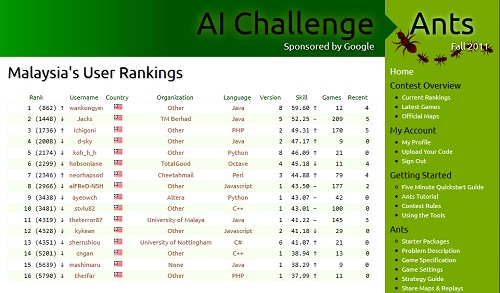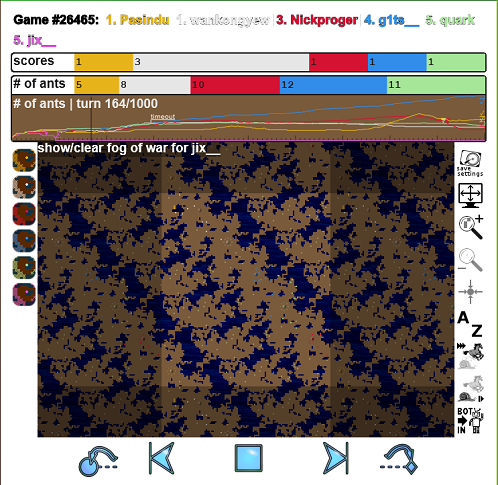So the Programming Languages course is just about over. There’s actually one peer assessment yet to go and it will probably be a few weeks until the course staff tabulates and releases the results, but all of the serious work is over. I wanted to get this post written before I start on two new courses next week. It’s run by Dan Grossman of the University of Washington and ran for 10 weeks. This course used a slightly different schedule than other Coursera courses which usually had weekly sections. For this course, the eight course sections were spread out over the ten weeks so we didn’t have a predictable schedule of when each section would be released.
The course used three different languages, starting with SML for the first four sections, Racket for the next two sections and ending with Ruby for the final two sections. There was a programming assignment for each section, with exception of section 4 when we had a mid-term exam. At the end of it all, we have the final exam which is still ongoing as of the time of writing. There were no other quizzes though each section’s programming assignment had to be submitted twice. Once to the autograding system to test for correctness and once again to the peer assessment system to check for style issues and correctness isssues for which it was difficult to get the autograder to test for. One cool thing is that most of the programming assignments have optional challenge questions which award a small number of bonus points for a comparatively huge amount of extra work, just for those who want to run the extra mile.
Continue reading End of Programming Languages class →

Due to real-life issues, I’ve had less time to devote to the contest that I’d expected so my progress has been slow. I should have more time from here on out so hopefully I’ll be able to do better. Most people haven’t been as lazy as me however and more people have entered than I expected. As of the time of the writing, there are over 6,600 entrants. The contestant count for last year’s contest peaked at less than 5,000.
As a rough gauge of the quality of the competition, I recently climbed to the first place for Malaysians, but my overall ranking is only 800+. By contrast, the user named Jacks who self-identifies as from TM Berhad held the Malaysian top spot for over a month but in the overall rankings he peaked in the 500s and has since gradually declined to the 1,400s. This suggests a combination of very good new entrants and users who have been actively improving their bots.
Continue reading AI Challenge 2011 Update →

Around this time last year, I participated in the Google AI Challenge, eventually finishing in 47th place out of nearly 5,000 participants. The contest this year had a bit of shaky start. There was some controversy over the name of the contest as it’s wholly organized by the Computer Science Club of the University of Waterloo. Google is providing sponsorship and has agreed to allow their name to be used but is otherwise completely uninvolved in what is otherwise a student project. Hence, this year the name is simply AI Challenge with a note that it’s sponsored by Google.
That wasn’t the only problem. Despite deciding on the nature of the game to be played fairly early on, the organizing team seemed to have a great deal of trouble coming up with the required tools, documenting everything and making sure the starter packages all work properly. It was annoying to see that while the contest had already started and is open to submissions, the website and the rules of the contest were still a work in progress. Nevertheless, everything now seems to be working correctly, apart from the fact that the server is far too slow and that there aren’t enough games being played. So I’ve submitted an entry and you can track my progress here.
Continue reading AI Challenge 2011 →

I’ve been very distracted recently due to my participation in the Google AI Challenge organized by the University of Waterloo and sponsored by Google. This is a programming contest in which participants each submit a bot that is capable of playing PlanetWars, a simple game based on the commercially-released game Galcon. I’ll probably confine the technical details and my own bot’s strategy to my Knights of the Cardboard Castle blog, but I thought it would interesting to look at some of the publicly available statistics.
Since I submitted my own entry, my wife and I have been scrutinizing the rankings on a fairly regular basis. It’s fun after all to see who’s doing the best and to know which countries they’re from. And seeing as how I’m Malaysian, it was only natural to want to know how well participants from neighboring countries might be doing. Keep in mind of course, that the contest only ends in December 2010, so the rankings are still in flux as new participants are still joining and entries are still being tweaked.
Continue reading Google AI Challenge →
The unexamined life is a life not worth living


